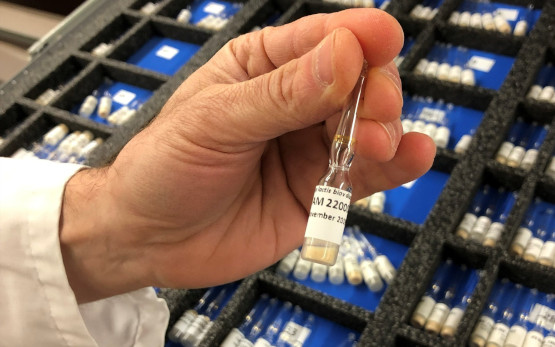Our gut microbiota is important for our health. The more diverse the microbial composition, the better. The Polyfermenthealth project aims to find new bacteria for yogurt production in order to bring more bacterial and nutrient diversity back into the diet.
Modern Western diets are characterized by a reduction of diversity, leading to an increase in human diseases. The bacteria that live in our intestine, compose a diverse and dynamic ecosystem, the so-called gut microbiota, that contributes to our health by producing a wide range of interesting bioactive compounds. However, scientists found that poor diet can cause a reduction of the diversity of our gut microbiota which leads to poor health. This phenomenon can be illustrated by comparing a rain forest rich in species with a palm tree plantation, which is more prone to diseases and pests.
How to restore nutritional diversity
Bacteria are chemical factories that produce and metabolize nutrients. Thus, one way to restore nutritional diversity is to provide our organism with fermented foods that are produced by bacteria. The fermentation of milk to yoghurt is an ideal solution to introduce bacterial and nutrient diversity in food.
However, today, most yogurts are made industrially from only two selected species of bacteria. The goal of the Polyfermenthealth project is to bring yogurt to a new dimension, by making use of cutting-edge technologies in biological sciences.
Find the best bacteria
But where can we get new bacteria for our yogurt? Should we plan an expedition to the rain forest to look for new bioactive molecules like the pharmaceutical industry? Fortunately, we don’t have to as we have our own treasure of bacterial strain diversity. Over the past 100 years, Agroscope has collected more than 15000 isolates from the Swiss dairy environment. This means that we do not have to go quite so far, just to our freezer! To choose the right bacteria for yogurt production that will produce the targeted bioactive compounds, we developed new bioinformatics tools to exploit the genetic resources of our bacterial culture collection. We then prepared hundreds of yoghurts with these bacteria and tested them for the presence of the selected compounds.
In particular, we designed one yogurt to create specific molecules to strengthen the immune system of newborns when added to the maternal diet. We have indeed succeeded in demonstrating this effect in a mouse model.
A new yogurt?
Our next step is to test our yogurts in human intervention studies. Who knows, maybe one day you will find one of our yogurts on a shelf at your local supermarket.
Another important outcome of the project is the creation of a spin-off to make the bioinformatics tools we developed available to other researchers and companies.
With the Polyfermenthealth project and the support of the Gebert Rüf-Stiftung, Agroscope and the University of Bern have paved the way for putting microbes to work in food at the service of human health.






